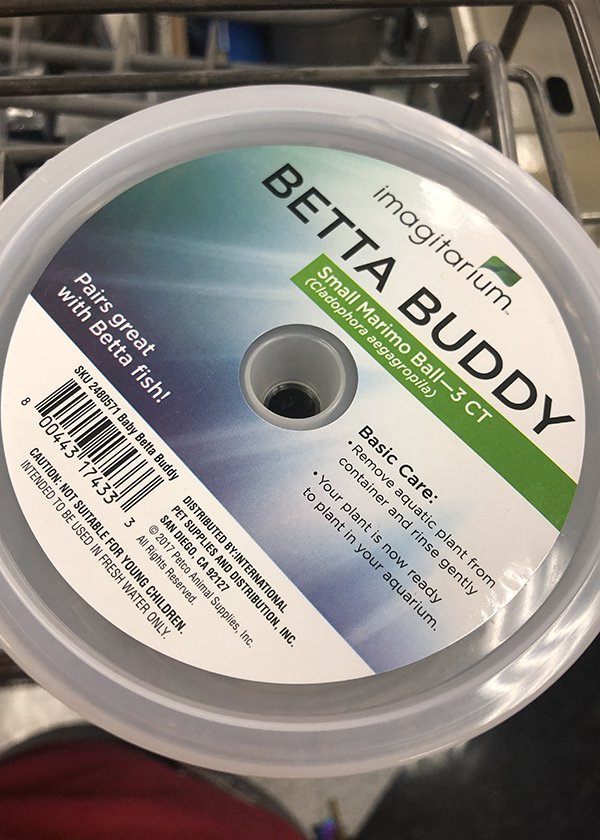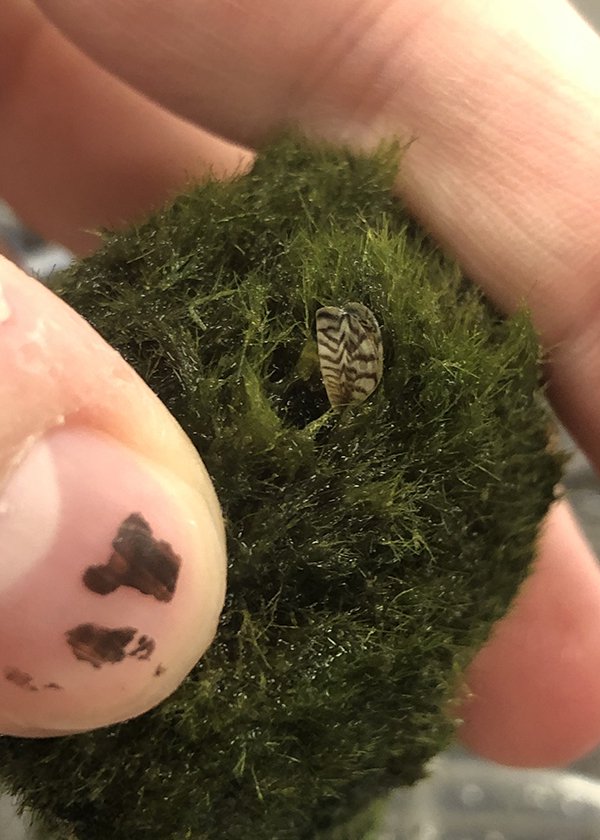Mussel Alert: Invasive Species Found In Popular Aquarium Product
- March 05, 2021
- John Harrison

Invasive freshwater mussels have been found in a popular aquarium product sold in pet stores, drawing alarm from state invasive species officials in the Pacific Northwest.
The U.S. Geological Survey released a public report this week about the product, “Betta Buddy” brand Marimo moss balls, which were sold at a Seattle Petco store and contained zebra mussels. The Washington Department of Fish and Wildlife (WDFW) removed 56 Marimo moss balls from the store and visually confirmed the presence of at least 12 zebra mussels. As the investigation continued, other states reported that the Marimo brand also was sold in other stores, including nationwide at PetSmart stores.
WDFW notified both Petco and PetSmart of the inadvertent distribution of the product with the invasive species, and the retailers quickly acted to pull the product from shelves nationwide and place them in quarantine, WDFW reported. The retailers are working with WDFW and other agencies to address the threat.
Lab testing confirmed the mussels as the zebra type (Dreisena polymorpha), which is a prohibited aquatic invasive species in Washington. Zebra mussels, and their relatives Quagga mussels, if left uncontrolled, can build thick, rock-hard mats of shells that can clog underwater infrastructure including water intake pipes and equipment at hydroelectric dams.
“Anything that moves can move invasive species,” said Justin Bush, executive coordinator of the Washington Invasive Species Council (WISC). “Invasive plants can hitchhike on your boots, aquatic animals can attach to your boat or equipment, and problem species can also move by hitchhiking through commerce; as we see in this case. We all have a role to play to prevent and stop invasive species, and the most basic action is reporting anything that could be a problem and looks out of place. If you see something, say something because you could find the first hitchhiker and prevent millions, if not billions of impacts to our economy and environment.”

Here are two methods for aquarium owners to safely dispose of the moss ball(s):
- Remove the moss ball(s) and place in a plastic bag. Put the bag in the freezer and leave for at least 24 hours. After that, the moss ball(s) can be disposed of in the trash.
- Place moss ball(s) in boiling water for at least one full minute. After that, the moss ball(s) can be disposed of in the trash.
Currently, the Pacific Northwest is free of zebra or Quagga mussels, thanks to a monitoring program that requires watercraft to be inspected when entering the states. State fish and wildlife agencies are coordinating their response to the threat. For example, all of the mussels detected in Montana so far have been dead shells. However, live mussels were found on moss balls in Oregon and Idaho.
Montana reported that the infested moss balls appear to have been imported from Ukraine and distributed by a company in San Diego. Alerted about the problem, the California company quarantined its remaining supply and stopped shipments. A moss ball is a species of green algae that is formed into a ball and is 2 to 5 inches in diameter. Moss balls are purchased for home aquariums to help absorb harmful nutrients in the water and limit the growth of undesirable algae.



